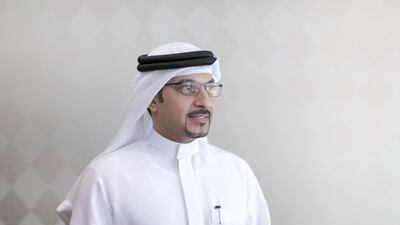Hala China, a Dubai initiative to explore opportunities to attract Chinese visitors, aims to replicate China's model of efficient and cheap technology, and also draw some of the East Asian country's movie business.
Jointly launched by Dubai property developer Meraas and investment conglomerate Dubai Holding in April last year, Hala China looks to boost the economic and cultural exchange between Dubai and China.
"China is not just a country, it is like a big continent, with many innovations that could be brought here [to Dubai]," Sheikh Majid Al Mualla, chairman of the board of directors at Hala China, told The National. "Dubai is already moving fast [in the technology sector] but still China is more advanced. When you look at the cost-to-income ratio, [Chinese tech companies] are very cheap with good products. This is something we can replicate in Dubai."
In the past few months, the initiative has partnered with several government entities and companies in the UAE and China to organise events such as Chinese Film Week in Dubai and the China and Arab Intercity Culture and Tourism Forum.
Hala China hosted Chinese film directors in Dubai to explore filming opportunities in the emirate, with meetings held with Dubai Media City officials to discuss the potential.
“Promoting Dubai as the first-choice destination among Chinese filmmakers is our priority this year. Our city has got the right tools, infrastructure and best locations but no one has looked at it seriously in the past,” said Mr Mualla.
China is the fastest growing film market in the world, according to professional services company Deloitte. By 2020, China's box office business is expected to reach 200 billion yuan (Dh106bn) and will exceed North America as the world's largest market in film revenue and audience numbers.
China is the UAE's biggest trading partner, with bilateral trade between the two exceeding $53.3bn in 2017, and there are plans to grow this to more than $70bn by 2020. There are several Chinese companies operating in the UAE, such as technology giant Huawei, contractor Chinese State Construction Engineering and China National Offshore Oil Corporation.
In April, China announced an investment of $3.4bn (Dh12.49bn) into shipping and food projects in Dubai, as part of its Belt and Road initiative in the UAE. For example, DP World has nearly 20 terminals that could benefit from the programme by acting as a key transit point for Chinese exports to African and European markets.
Dubai also hosts one of the world's largest Chinese product markets outside China at Dragon Mart located in the International City.
For the next three years, Hala China is focused on three main objectives – facilitating Chinese investment in Dubai, attracting more tourists from China and the exchange of culture between the two nations.
“The emphasis will be on having 60 per cent of our events in Dubai while remaining in different parts of China,” said Mr Mualla.
Since its inception, Hala China has been successful in attracting an increasing number of Chinese tourists. The number of transit tourists from China visiting Dubai reached nearly 800,000, in the first 11 months of last year, a yearly increase of 12 per cent on 2017, according to Hala China.
“Our peak period was from December to February,” Mr Mualla added.
Hala China, whose partners include Bank of China and Emirates Airline, is also working to import Chinese expertise in the fields of renewable energy and agriculture.
“China has developed the best agro-technology to use in harsh climate conditions. It is processing seawater to use in fields and is successfully doing vertical farming,” Mr Mualla said.
Last week, Hala China, which has an office in Beijing and partners spread across China, signed an agreement to strengthen the collaboration between Sichuan province and Dubai in various sectors, including tourism, culture, investment and trade.


